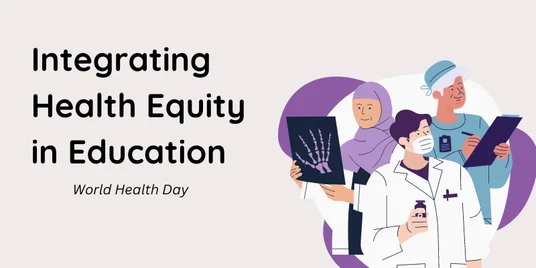
BSc (Hons) Equine Science

Course overview
| Qualification | Bachelor's Degree |
| Study mode | Full-time |
| Duration | Data not available |
| Intakes | |
| Tuition (Local students) | Data not available |
| Tuition (Foreign students) | Data not available |
Admissions
Intakes
Fees
Tuition
- Data not available
- Local students
- Data not available
- Foreign students
Estimated cost as reported by the Institution.
Application
- Data not available
- Local students
- Data not available
- Foreign students
Student Visa
- Data not available
- Foreign students
Every effort has been made to ensure that information contained in this website is correct. Changes to any aspects of the programmes may be made from time to time due to unforeseeable circumstances beyond our control and the Institution and EasyUni reserve the right to make amendments to any information contained in this website without prior notice. The Institution and EasyUni accept no liability for any loss or damage arising from any use or misuse of or reliance on any information contained in this website.
Entry Requirements
Entry Requirements:
260 UCAS Tariff points from one of the following:
3 A-levels at minimum C or above
BTEC Level 3 Extended Diploma at DMM
BTEC Level 3 Diploma at D*D
4 Scottish Highers at minimum C or above
4 Irish Highers at minimum C or above
International Baccalaureate Diploma at 24 points
Curriculum
First Year
- Equine Biology: This module develops a broad understanding of the biological principles which underlie equine production and performance.
- Horse Handling: An ability to handle a variety of horses in different scenarios is developed through hands on experience to be able to fulfil a range of roles in the equine science industry.
- Equine Health: Causes, solution and prevention of health issues in equines are examined within this module.
- Data Handling (half module): This module provides a good grounding in methods of collecting and analysing data. Students will make use of spreadsheets to calculate descriptive statistics and display data in a variety of appropriate formats, as well as developing their skills in the interpretation of scientific results.
- Study Skills and Personal Development (half module): Students will participate in a structured and supported process in order to enable them to understand what and how they are learning and to review, plan and take responsibility for their own learning and personal development in preparation for the working world.
- Equine Therapy (option module:) This module builds an understanding of the types of injuries that the horse may be susceptible to and the therapeutic and rehabilitation techniques currently practised.
- Equine Behaviour (option module): This module aims to develop an understanding of equine behaviour and methods through which to measure and modify behaviour.
- Elective: Students can select from a range of modules, which may include Competitive Equitation, Yard Management and Development, Business Management and Work Skills Development (subject to timetable restrictions).
- Equine Biomechanics: The specific aims are to understand the relationship between equine anatomy and movement, and soundness and performance; and to develop understanding and practical skills in the methodologies for measuring biomechanical parameters.
- Principles of Equine Nutrition:The module aims are to build on knowledge gained within the horse management module, to develop knowledge of nutritional requirements in a wide variety of horses, recognise the significance of poor ration formulation within the industry and the environmental management of arable crops.
- Research Methods: Experimental design and data analysis are core themes in this module. It will introduce concepts of statistical testing and further develop skills in presenting and interpreting results of scientific investigations. The module will give students vital skills in formulating research questions and designing an effective experiment.
- Equine Genetics and Evolution (half module):The principles of genetic and evolution applied to the equine industry regarding inheritance of traits such as colour, performance and disease.
- Career Development (half module): Students will be supported in acquiring the knowledge, concepts, skills and attitudes that will equip them to manage their careers and being a lifelong progression in learning and work.
- Equine Exercise Physiology (option module): This module gives students understanding of the mechanisms of energy metabolism and physiological adaptations of the horse to exercise and training and means of monitoring performance.
- Ethics of the Horse Industry (option module):This module builds on a basic understanding of animal training and behaviour to enable the student to evaluate ethical issues surrounding current practices within the horse industry.
- Elective: Students can select from a range of modules, which may include Stud Management, Work Project, Business Planning and Developing the Horse and Rider (subject to timetable restrictions).
- Research Project (double module):Students will be given the opportunity to design and carryout a piece of investigative research into a topic that interests them. This will allow them to demonstrate the skills that they have developed throughout the course including the abilities to design an original investigation, to work independently, and to produce a coherent and critical report.
- Manipulation of the Horse for Performance: Evaluation of the morality of human’s treatment of performance horses.
- Global Developments in the Equine Industry (half module): An up to date critical review of the advances of equine industries across the world.
- Professional Practice and Consultancy (half module): This module will develop the students’ ability and professional competency in marketing themselves so as to deliver and manage consultancy services within a legal and ethical framework.
- Advances in Equine Reproduction (option module):This module aims for the student to be able to critically review and evaluate the impact of advances in equine reproduction.
- Advances in Equine Nutrition (option module): The student will critically analyse and evaluate the interface between nutrition in a variety of complex settings within the equine industry including rehabilitation and performance.
- Elective: Choices include livestock technologies, elite equestrian performance strategies and innovations in equine training (subject to timetable restrictions).








